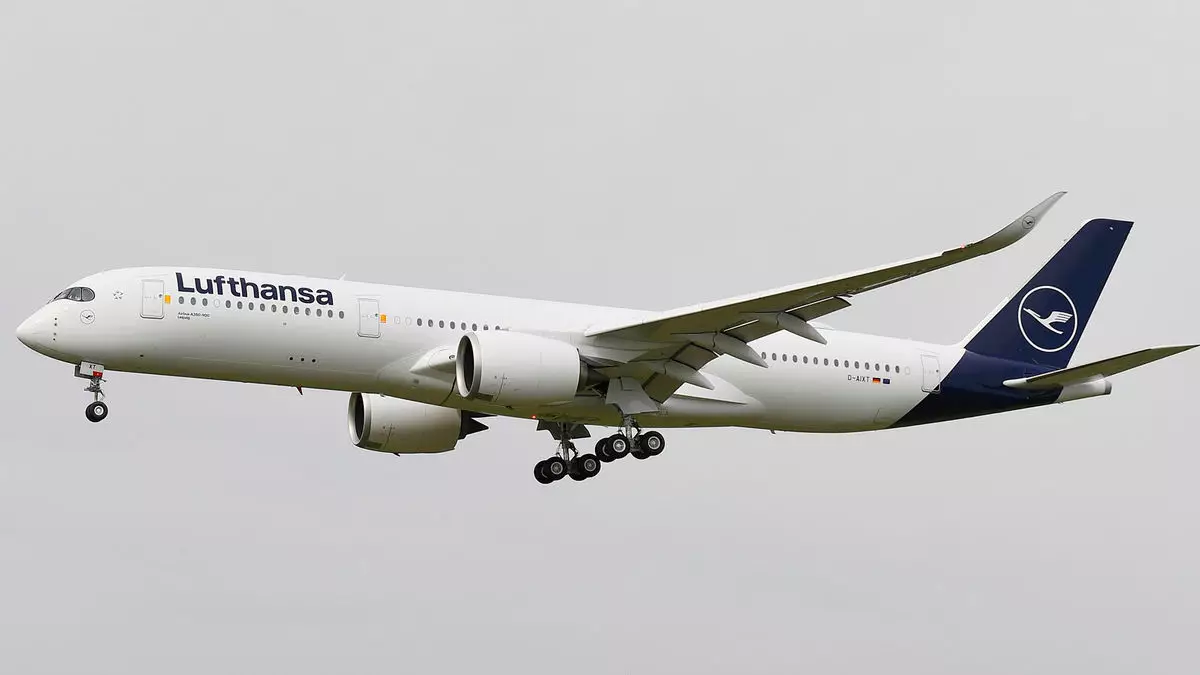In May 2022, Lufthansa faced scrutiny from the U.S. Transportation Department (DOT) after an incident regarding its treatment of Orthodox Jewish travelers on a flight from New York to Budapest. The airline was fined $4 million, with a portion to be paid in cash and the remaining amount credited to the airline for compensation already given to affected passengers. The incident raises important questions about discrimination, corporate responsibility, and the practices airlines must adopt in sensitive situations.
On May 3, 2022, 131 passengers were en route to a significant event intended to honor a rabbi. This journey included a connection in Frankfurt, where the passengers faced an unexpected setback. While Lufthansa had implemented strict face mask policies, the communication and enforcement of these rules appear to have been flawed. The flight crew warned passengers regarding mask regulations and prohibitions against congregating in aisles. However, the subsequent handling of reported violations became troubling, as the airline ultimately barred the majority of Orthodox Jewish passengers from boarding their connecting flight without pinpointing specific rule-breakers.
Understanding the Consequences
According to the consent decree issued by the DOT, Lufthansa’s actions adversely affected passengers based on their religious and ethnic affiliation, a serious violation of federal regulations against discrimination. The airline’s failure to identify violators came under scrutiny for reinforcing a pattern of behavior, suggesting a need for airlines to be more sensitive to the dynamics among passengers of similar backgrounds.
Interestingly, the passengers were not a coordinated group, with many booking flights separately or in small clusters. Most were reportedly unfamiliar with one another, undermining Lufthansa’s rationale that so many rule infractions caused them to mishandle the situation. The involvement of many passengers, dressed in Orthodox Jewish attire, brought the issue’s sensitivity to the forefront of public discourse.
In response to the incident, Lufthansa has publicly apologized on multiple occasions, asserting a commitment to combat antisemitism and discrimination. The airline’s collaboration with the American Jewish Committee to design training programs for its employees and management represents a constructive initiative toward addressing these issues. Lufthansa emphasized its dedication to tolerance and diversity, noted for being the first airline to adopt the Holocaust Remembrance Alliance’s definition of antisemitism.
Despite these gestures, the airline disagreed with the DOT’s conclusions. Lufthansa asserts that the denial of boarding stemmed from a plethora of infractions rather than discriminatory practices. The company’s narrative attempts to frame the situation as a regrettable mishap rather than a systemic failure in judgment.
The Lufthansa incident serves as a reminder of the crucial role that communication plays in air travel, especially amid heightened scrutiny regarding passenger treatment. Airlines must navigate complex social dynamics, particularly when passengers share identifiable backgrounds. This case underscores the need for better training for flight crews and personnel regarding the nuances of cultural sensitivity and discrimination.
Moreover, it raises important questions about the effectiveness of current airline policies. How can airlines ensure equitable treatment across diverse social groups? The need for robust and clear protocols to handle sensitive situations is more pressing than ever. Lufthansa’s recognition of the need for improvement through its partnership with advocacy groups reflects a necessary shift toward inclusivity and respect for all passengers.
The Lufthansa controversy highlights a critical moment in airline operations, emphasizing the importance of fair treatment for all passengers. While the financial repercussions and public outcry serve as essential corrective measures, the airline industry must delve deeper into its operational practices. Acceptance and compassion are more than buzzwords; they are critical to fostering a welcoming environment for all travelers. The stakes are high, and how airlines respond to such challenges could very well define their reputations in an increasingly interconnected and socially aware world.

